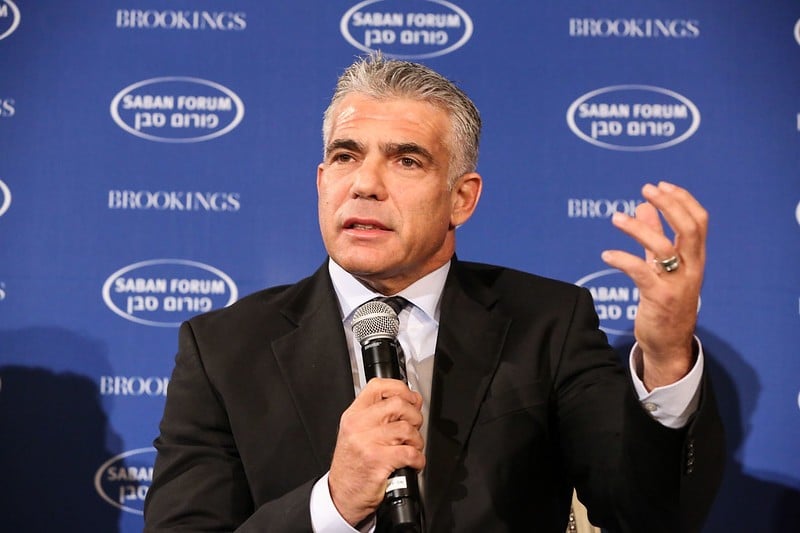Israeli prime minister Yair Lapid in 2015 (source: Flickr)
A longstanding maritime border conflict between Israel and Lebanon could be resolved. Both countries lay claim to the same strip of ocean in the eastern Mediterranean. A United States mediator has put forward a new proposal for the demarcation of the border, that was delivered to Lebanese and Israeli officials last weekend.
Valuable gas deposits
The stretch of ocean contains Karish gas field and the Qana prospect, which could have lucrative gas deposits. While Israel puts the border north, allowing it to operate in Karish, Lebanon claims the border is further south. In 2012, a US mediator already made a proposal to find a midway solution for the border conflict, but it was denied. Recently, Lebanon ordered the border would be pushed south. The current solution put forward by the US should provide a compromise. The countries would share the Qana prospect, but Karish would remain within Israeli territory. The latest compromise would be the result of years of intermittent negotiations, mediated by the US. A possible deal would be a remarkable breakthrough, unlocking lucrative gas deposits.
Lebanon has not been able to begin producing gas, because international companies refuse to explore the area until the territorial conflict has been resolved. Most of the Qana prospect will go to Lebanon, although there are no proven reserves in that field, while Karish field remains in Israel’s zone. Negotiations between the two countries are still taking place at a United Nations base. The deal has not been finalized yet.
Russian-Ukrainian war
The Russian-Ukrainian war is a crucial impetus for the breakthrough. Europe looks at the eastern Mediterranean as a possible replacement for the supply of gas, filling the vacuum left by the conflict. Israel is already a major producer of gas but could add to its output by operating in Karish. An official explained on Israeli television that: “There is an urgency and a necessity to reach an agreement in the near future and without delay, in order to prevent an escalation of security [dangers], which is [otherwise] highly likely, and to utilize the unique window of opportunity to reach an agreement.”
However, there are security concerns. The Iranian-backed armed group Hezbollah has announced that it could block the export of gas to Europe, if Lebanon’s territorial rights are not respected. In response, Israel threatened with war if there is any Hezbollah attack.
Historic opportunity
Nonetheless, all parties involved appear to be willing to reach an agreement. Both Lebanese officials and Hezbollah have called the proposal a historic opportunity for Lebanon, that is struggling with severe economic problems. The country has been plagued by a worsening economic crisis since 2019, devaluating the Lebanese pound and evaporating savings-accounts.
Israel’s prime minister Yair Lapid noted that “it is not yet possible to praise a done deal.” However, he argued that the draft agreement “safeguards Israel’s full security-diplomatic interests, as well as our economic interests.” Opposition leader Benjamin Netanyahu, Lapid’s rival in the upcoming elections next month, rejected the deal, saying Lapid was “surrendering” to Hezbollah.
Later this week, however, the deal came under some pressure as Israel announced it would reject Lebanon’s amendments to the draft proposal. The future of the agreement is therefore still uncertain. Lebanon’s lead negotiator Elias Bou Saab explained that the deal is “90% done but the remaining 10% could make it or break it.”
Recent tensions
Tensions between the two countries came to a head earlier this year, when Israel sent a gas exploration ship to the Karish gas field. Recently, the country stated it would start producing gas at the site. In response, Hezbollah leader Hassan Nasrallah claimed that the organization’s missiles were “locked on” to Karish. Although a possible agreement would not mean a normalizations of Israeli Lebanese relations, it could seriously reduce tensions between the two enemy countries.
Sources: The Financial Times, Al Jazeera 1, Al Jazeera 2, Al Jazeera 3, The Times of Israel
Photo: Flickr

